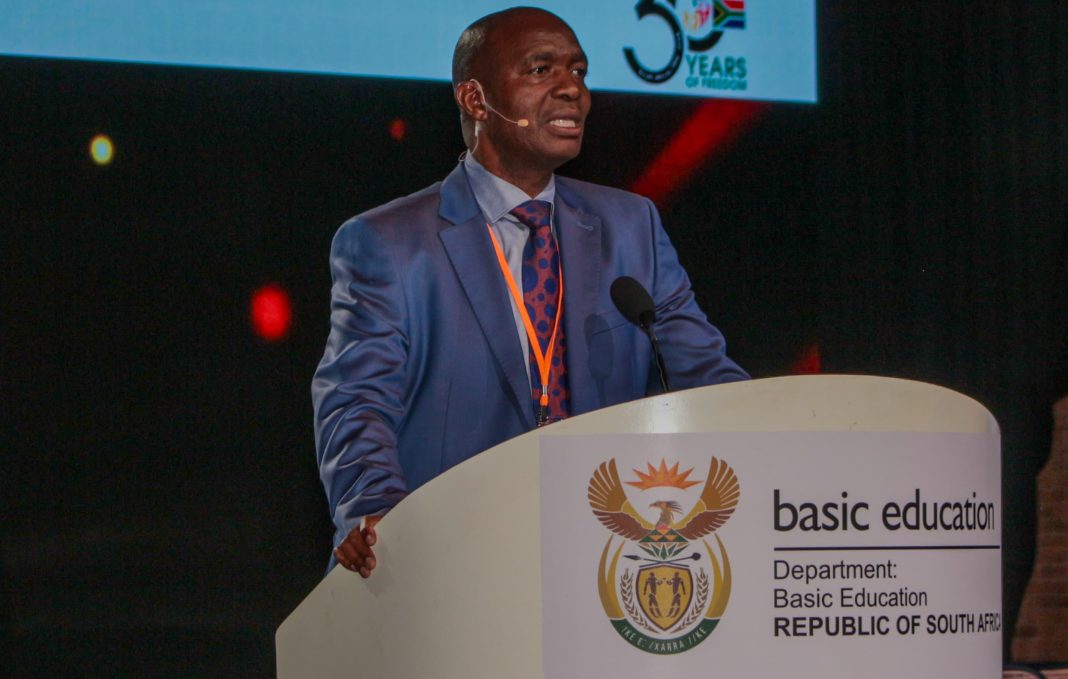By Thebe Mabanga
The performances of learners from poor backgrounds, as well as the sacrifices of teachers, learners and broader communities were the most commendable features of this year’s matric results.
That is according to Basic Education director-general Mathanzima Mweli, who spoke shortly after giving the technical presentation of the matric results of the Class of 2024, who achieved a record pass rate of 87,3%.
Mweli spoke of teachers “who know of no weekends and no holidays” in order to offer extra lessons and camps, as well as parents who gave up their time and other resources to support learners in camps by offering services like security and catering.
“The broader support from civil society in order for learners to receive extra support is something I have never seen,” he said.
This year’s matric exam had a fulltime enrolment of 724,156 candidates and 155,948 part-time candidates. This group started school in 2013 as 1,2 million. A total of 740,876 matriculated, which is a retention rate of 61,6 %.
But Mweli noted that this was not due to the widely held belief that there was a high drop-out rate.
“The problem is not high drop-out, it is high failure rate and repeating grades,” he said, suggesting that most learners were still in the system and would reach matric, just not in the envisaged record time.
A total of 572,338 learners, more than 75% of the candidates, were grant recipients.
Mweli attributed this statistic to the support offered by government.
“Government offers a safety net.”
This group of learners started their high school careers in 2020, the year of the Covid-19 outbreak.
Mweli said they have benefited from “extraordinary support” since the pandemic in the form of extra classes, support for former model C schools, a wider range of subjects, more intense monitoring and the use of data to track progress.
The pass rate for no fee school was 85,8%, while fee paying school achieved 90,1 % and independent schools achieved 91,9%. The pass rate among males and females was almost similar at 87,5% for females and 87,1 % for males, while the bachelor pass rate stood at 47,8 %.
An impressive feature of these results was the record low enrolment and absentee rate.
In 2017, of the learners who were registered for Grade 12 by October, 15% did not write their final exam. This year the figure of absentees was only 2,63%.
Mweli attributed this improvement to the confidence that learners have developed in their chances of passing.
“You are unlikely to go write if you feel you are going to fail,” he explained.
Government says it had to contend with a number of challenges in the staging and marking of these exams. These range from inclement weather such as floods and heat waves, to water and electricity supply challenges. There was also the challenge of marker wellbeing as well as food handling and hygiene.
To deal with the weather, government provided daily forecasts and enlisted the support of the South African National Defence Force. It also allowed learners to use accessible exam centres in the event of floods, for instance.
Marking centres were supplied with backup power and water tanks, while markers were given access to psycho sociological support to aid their overall health and wellbeing. Stringent food preparation and handling measures were also put in place.
Mweli used the occasion to pay tribute to all education ministers who have served during the country’s democracy, starting with the recently deceased Prof. Sibusiso Bengu, the late Kader Asmal and Angie Motshekga as well as former directors-general Thami Mseleku and Duncan Hindle.
He also paid tribute to the four educators and markers who lost their lives during the marking period.
INSIDE EDUCATION







